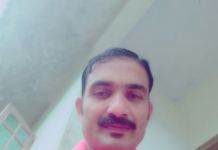കുവൈത്ത് സിറ്റി: ഒമ്പതാമത് ആയുർവേദ ദിനം ആഘോഷിച്ച് കുവൈറ്റിലെ ഇന്ത്യൻ എംബസി. ലോകമെമ്പാടുമുള്ള 150-ലധികം രാജ്യങ്ങൾ ആയുർവേദ ദിനം ആഘോഷിക്കുന്നുണ്ട്. ഇത് പരമ്പരാഗത ഇന്ത്യൻ ചികിത്സാ സമ്പ്രദായം പ്രോത്സാഹിപ്പിക്കുന്നതാണ്. കുവൈറ്റിൽ, ഇന്ത്യൻ എംബസി ആയുർവേദത്തെ കേന്ദ്രീകരിച്ച് വൈവിധ്യമാർന്ന ആകർഷകമായ പരിപാടികൾ സംഘടിപ്പിച്ചു. ആയുർവേദത്തിൻ്റെ സമഗ്രമായ സമീപനത്തെക്കുറിച്ചും ആരോഗ്യവും ക്ഷേമവും നിലനിർത്തുന്നതിലെ പ്രാധാന്യത്തെക്കുറിച്ചും അവബോധം വളർത്തുകയാണ് ഈ പ്രവർത്തനങ്ങൾ ലക്ഷ്യമിടുന്നത്.

The theme of this year’s Ayurveda Day – ‘Ayurveda Innovation for Global Health’ is a very apt one. This is in consonance with the vision of Prime Minister Shri Narendra Modi who believes that generating quality evidence through innovation in Ayush is of prime importance for positioning Ayurveda as a leader in holistic and sustainable healthcare solutions for global health.
Ayurveda, which means “the science of life,” is an ancient Indian tradition that began in India over 3000 years ago. It is based on the idea that each person has certain life forces (doshas) and everything in the universe is connected. An imbalance in one area can affect another. When the imbalance is not fixed, disease and illness can occur. Ayurveda mostly uses nutrition, lifestyle changes, and natural treatments. These are used to support balance and a return to health. Ayurveda is very focused on overall health. But it may use specific treatments for some diseases. I think we will hear all these aspects of Ayurveda from experts who are going to speak after me.
The focus of Government of India on promotion of Ayurveda is evident from the fact that a new Ministry of Ayush was created in 2014. Ayurveda is not only gaining greater traction in India but overseas as well. The persistent efforts of Ministry of Ayush and our Missions abroad have resulted in legal recognition of Ayurveda, export of Ayurveda products, and signing of bilateral MoUs in the field of Traditional Medicines (TM) with many countries. 13 MoUs have been signed for setting up AYUSH Academic Chairs in foreign Universities/ institutes. 33 AYUSH Information Cells have been set up in different countries to disseminate authentic information about AYUSH systems. Ayurveda is increasingly becoming a part of our multilateral engagements such as the SCO Expert Working Group on Traditional medicine, BIMSTEC Taskforce on Traditional medicines, BRICS High-level forum on Traditional medicines, etc. The Ministry of Ayush has also collaborated with WHO which has resulted in publishing WHO benchmarks for Training in Ayurveda and benchmarks for practice of Ayurveda. In a significant development, WHO has established the Global Traditional Medicine Centre (WHO-GTMC) at Jamnagar, Gujarat with the support of Ministry of Ayush.
The GCC region including Kuwait with its openness to diverse traditions has embraced Ayurveda with enthusiasm, in particular, external therapies. In recent years, we have witnessed an increasing demand for Ayurvedic treatments, wellness centers, and health retreats of India. In Kuwait, you will find a good number of ayurvedic centres, more commonly known as ayurvedic wellness centres or spas. Some Indian Ayurvedic medicines and cosmetics are also available in Kuwait, some of which are displayed in the exhibition area. This reflects a broader trend — a growing recognition of Ayurveda’s role in holistic health, not only for individuals but for communities.


































